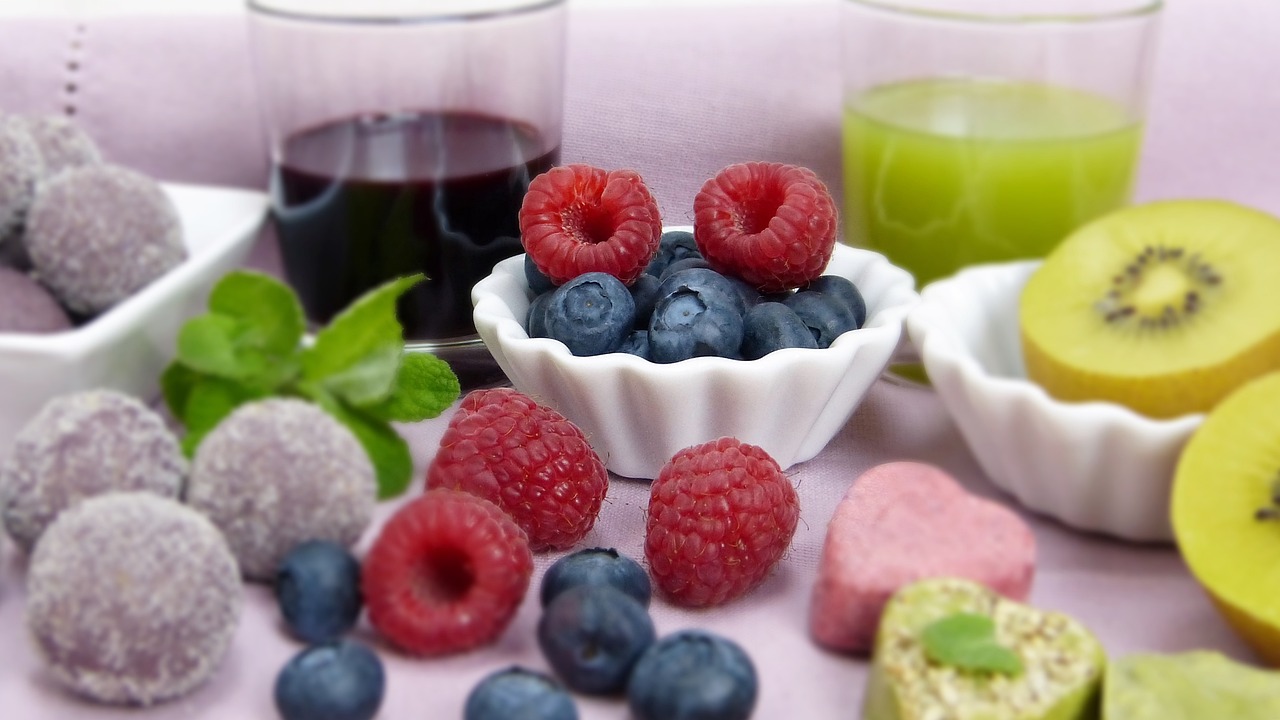- Proanthocyanidins (PCO’s)
- Citrus
- Green Tea Polyphenols
- Quercetin

Essential Nutrients and Their Sources
0:32 – most of your diet they are called.
0:13 – essential nutrients can be grouped into
0:17 – six categories water fats minerals
0:23 – vitamins proteins and carbohydrates
0:28 – carbohydrates proteins and fats make up
0:32 – most of your diet they are called
0:34 – macronutrients vitamins and minerals are
0:39 – micronutrients because you need them in
0:42 – much smaller amounts some good
0:46 – carbohydrates are found in vegetables
0:49 – fruit legumes unsweetened dairy products
0:52 – and 100% whole grains like brown rice
0:55 – wheat and oats proteins are found in
0:59 – meat fish eggs and plant sources like
1:02 – beans soy nuts and some grains healthy
1:05 – fats can be found in nuts seeds fish and
1:08 – coconut oil and vegetable oils like
1:11 – olive avocado and flax seeds most
1:14 – vitamins can be found in vegetables and
1:18 – fruits minerals can be found in meat
1:24 – cereals fish milk and dairy foods fruit
1:27 – and vegetables and nuts
1:34 – you can go for weeks without food but
1:36 – you can’t last more than a few days
1:38 – without water water is absolutely
1:40 – crucial for every system in your body it
1:43 – is also the main thing that you are made
1:46 – of about 62 percent of your body weight
1:48 – is water
List of Nutrients
.
Vitamins
.
Retinoids
-
-
-
-
- Retinol
- Retinal
- Retinyl esters
- Retinoic acid
-
-
-
Vitamin B
B1 – Thiamine
B2- Riboflavin
B3 – Nicotinic Acid
B4
-
-
-
-
- adenine
- carnitine
- choline
-
-
-
B5 – Pantothenic Acid
B6 – Pyridoxine
-
-
-
-
- Pyridoxal
- Pyridoxine
- Pyridoxamine
-
-
-
B7 – Biotin
B9 – Folic Acid
B12
-
-
-
-
- Cobalamin
-
Methylcobalamin
-
-
-
Vitamin C
Vitamin D
-
-
- Cholecalciferol-D3
-
Vitamin E
-
-
- Alpha-Tocopherol
-
Vitamin K
K1 – Phylloquinone
K2 – Menaquinone
Vitamin P (Historical name before 1980)
Bioflavonoids
Flavonoids
-
-
-
-
- Flavanols
- Flavan-3-ols
- Flavones
- Flavanones
- Isoflavones (phytoestrogens)
- Anthocyanins
- Bioflavonoids.
-
-
-
.
Minerals
.
Aluminum
Arsenic
Beryllium
Barium
Boron
Bromine
Calcium
Carbon
Cerium
Cesium
Chromium
Chloride
Cobalt
Copper
Dysprosium
Erbium
Gadolinium
Gallium
Germanium
Gold
Hafnium
Holmium
Hydrogen
Iodine
Iron
Lanthanum
Lutetium
Lithium
Magnesium
Manganese
Molybdenum
Neodymium
Nickel
Niobium
Nitrogen
Oxygen
Phosphorus
Potassium
Praseodymium
Rhenium
Rubidium
Samarium
Scandium
Selenium
Silica
Silicon
Silver
Sodium
Strontium
Sulphur
Sodium (Chloride)
Tantalum
Terbium
Thulium
Tin
Titanium
Vanadium
Ytterbium
Yttrium
Zinc
Zirconium
.
Essential Fatty Acids
.
Omega 3
Omega 6
Omega 9
.
Amino acids
.
Alanine
Arginine
Asparagine
Aspartic Acid
Cysteine
Glutamic Acid
Glutamine
Glycine
Histidine
Isoleucine
Leucine
Lysine
Methionine
Phenylalanine
Proline
Serine
Taurine
Threonine
Tryptophan
Tyrosine
Valine
.
Other Nutrients
.
Carotenoids
Chlorophyll & Chlorophyllin
Coenzyme Q10
Curcumin
Fiber
Garlic Indole-3-Carbinol
Isothiocyanates
L-Carnitine
Lignans (phytoestrogens)
Lipoic Acid
Phytochemicals
Phytosterols
Resveratrol
Soy
,
.
In short, for ideal health the human diet must include
cruciferous vegetables
red orange and yellow fruits and vegetables
leafy green vegetables
pure water
iodine
organosulfur
curcuminoids
“complementary proteins”
legumes (beans)
nuts
seeds
grains, which make up
omega 3 oil
minimally some of the veggies you eat MUST be RAW. ideal human nutrition vegetarian
